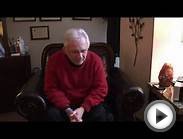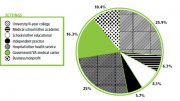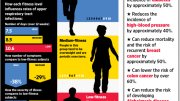
Dr. David Matsumoto (davidmatsumoto.com) is the founder and director of Humintell (humintell.com), which provides training in the fields of facial expression of emotion, nonverbal behavior, detecting deception and cultural adaptation. He is also a professor of psychology at San Francisco State University (SFSU), and founder and director of SFSU’s Culture and Emotion Research Laboratory, which focuses on studies involving culture, emotion, social interaction and communication. Matsumoto received a bachelor’s degree in psychology and Japanese from University of Michigan in Ann Arbor (1981), and his master’s degree (1983) and doctorate degree in Psychology (1986) from the University of California, Berkeley.
When did you first decide to become a psychologist? Why?
My inspiration to become a psychologist first came when I was an undergrad at the University of Michigan. I thought I wanted to become a physician and took pre-med related courses and also volunteered in the emergency room at the University of Michigan Medical Center. To make a long story short, at that time I thought that while physicians were there to relieve a lot of the physical suffering, people actually had a lot of mental suffering as well, and I felt something should be done about that. Simultaneously, I had a good friend who suggested I take some psych courses, and I did fairly well in them. So after a couple semesters I decided to become a psychology major, initially to become a clinical psychologist because I wanted to have a hand in treating other people’s suffering that I had witnessed while volunteering in the emergency room.
How/why did you choose the doctorate program you attended?
While at U of M, I had the opportunity to work for a few years alongside the late Dr. Robert Zajonc, a very famous social psychologist. During this time, I still wanted to become clinical psychologist and UC Berkeley happened to have an early admission deadline. I submitted my application in clinical psychology, but Dr. Zajonc recommended I apply to several other schools in social psychology, which I did. However, I got into Berkeley and decided to attend, still thinking I wanted to be a clinician.
What surprised you the most about the doctorate program?
What surprised me the most was the immense freedom we as students had to pursue whatever kinds of ideas with whomever we wanted to study them with, while simultaneously completing our studies and clinical work. That’s a model that occurred at Berkeley at that time, but doesn’t exist in most graduate programs today.
Why did you choose to specialize?
I actually didn’t choose to specialize in microexpressions. I wanted to study expressions and by studying and learning about the different types of expressions, I learned about microexpressions, which are one type of expression.
If you had it to do all over again, would you still become a psychologist? (Why or why not? What would you have done instead?)
I would like to think that I would still become a psychologist because I love what I do, I love the topic that I study, and I love the life that I have carved out for myself as a psychologist. However, it’s an interesting question, because all you’re asking is if I would choose to do it, and if you look at my past history, almost all of decisions I’ve made are kind of on accident. I’ve been fortunate enough to have things go my way and really fortunate to work with really good people over the years, and I don’t know if I planned any of that.
Has being a psychologist met your expectations? Why?
Yes, it’s met and far exceeded whatever expectations I had of my career.
What do you like most about being a psychologist? Explain.
What I like most about being a psychologist is observing behavior and trying to figure out why behaviors occur. I like trying to understand why people are different and why they are the same. I like figuring out why people do what they do. I like thinking about it, I like studying it, I like getting the answers. I like having the answers lead to new questions; I just like that whole process.
What do you like least about being a psychologist? Explain.
I don’t like the politics and administrative work that are involved in doing my work. I definitely don’t like waiting to get the answer once I do a study. I could have an interesting research question and do a study, but it could take me two years to get the answer. It’s not something that I can get immediately, so I don’t like waiting because I’m kind of an impatient guy.
Describe a typical day at work—walk readers through a day in your shoes.
I’m up around 5:30 a.m. I’ll decide then if I’ll get up then and work or if I’m going to stay in bed for an extra 30 minutes and then get up. As soon as I wash up, I go straight to my study in my house. I write every morning, six days a week. Whether it’s a journal article, chapter, book, grant proposal, I’ll be writing...
Source: www.studentdoctor.net
You might also like:







|
Neuroscience Media Image, Illustration, and Chart DVD Software (Neuroscience Media Publishers, LLC)
|
















